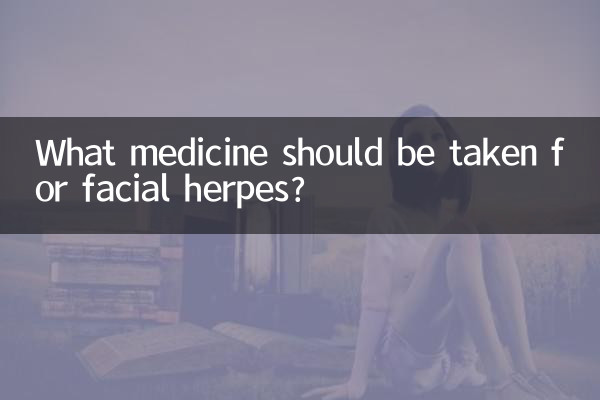What medicine should be taken for facial herpes?
Facial herpes is a common skin disease, usually caused by the herpes simplex virus (HSV), which presents with symptoms such as blisters, redness, swelling, and pain on the facial skin. Among the hot topics in the past 10 days, there has been a lot of discussion about the treatment and medication of facial herpes, especially the drug treatment options for different types of herpes. Below is a summary of medication recommendations and popular discussions for facial herpes.
1. Common types and symptoms of facial herpes

There are two main types of facial herpes: herpes simplex virus type 1 (HSV-1) and herpes simplex virus type 2 (HSV-2). HSV-1 usually causes oral herpes, while HSV-2 is more common in genital herpes but can also be spread to the face through contact. Here is a comparison of the symptoms of the two types:
| type | Common symptoms | High-risk groups |
|---|---|---|
| HSV-1 (cold sores) | Blisters, burning sensation, and itching around lips | children and teenagers |
| HSV-2 (herpes facial) | Facial skin blisters, pain, redness and swelling | adult |
2. Commonly used drugs for facial herpes
Medications for treating facial herpes mainly include antiviral medications, painkillers, and topical ointments. The following are commonly used drugs recommended in popular discussions in the past 10 days:
| drug type | Drug name | effect | How to use |
|---|---|---|---|
| antiviral drugs | Acyclovir | Inhibit virus replication | Take orally or topically |
| antiviral drugs | Valacyclovir | shorten the course of disease | oral |
| painkillers | Ibuprofen | Relieve pain and inflammation | oral |
| topical ointment | Penciclovir Cream (Penciclovir) | topical antiviral | Apply to affected area |
3. Adjuvant treatment of facial herpes
In addition to drug treatment, patients can also use the following methods to help relieve symptoms:
1.Keep the affected area clean: Avoid touching herpes with your hands to prevent bacterial infection.
2.Cold compresses to relieve pain: Wrap ice cubes in a clean towel and apply cold compress to the affected area for 10-15 minutes each time.
3.avoid irritating foods: Such as spicy and acidic foods to avoid aggravating symptoms.
4.Enhance immunity: Take in more vitamin C and zinc to help the body resist viruses.
4. Preventive measures for facial herpes
The key to preventing facial herpes is to avoid the spread and recurrence of the virus:
| Precautions | Specific methods |
|---|---|
| avoid contact | Do not share towels, tableware and other personal items with others |
| sun protection | Ultraviolet rays may trigger herpes, so use sunscreen when going out |
| reduce stress | Excessive stress can reduce immunity and increase the risk of relapse |
5. Popular questions and answers
In the past 10 days, popular questions about facial herpes have mainly focused on drug treatment and prevention. The following are two high-frequency questions:
Q1: Can facial herpes heal on its own?
A1: Mild facial herpes usually heals on its own within 1-2 weeks, but the use of antiviral drugs can shorten the course and reduce symptoms.
Q2: Is herpes contagious? How to avoid infecting family members?
A2: Herpes is contagious and is mainly spread through direct contact or shared items. Patients should avoid close contact with others and maintain personal hygiene.
Summarize
The treatment of facial herpes is mainly antiviral drugs, supplemented by analgesics and topical ointments. At the same time, maintaining good living habits and immunity are the keys to preventing recurrence. If symptoms are severe or recurring, it is recommended to seek medical treatment promptly.

check the details

check the details